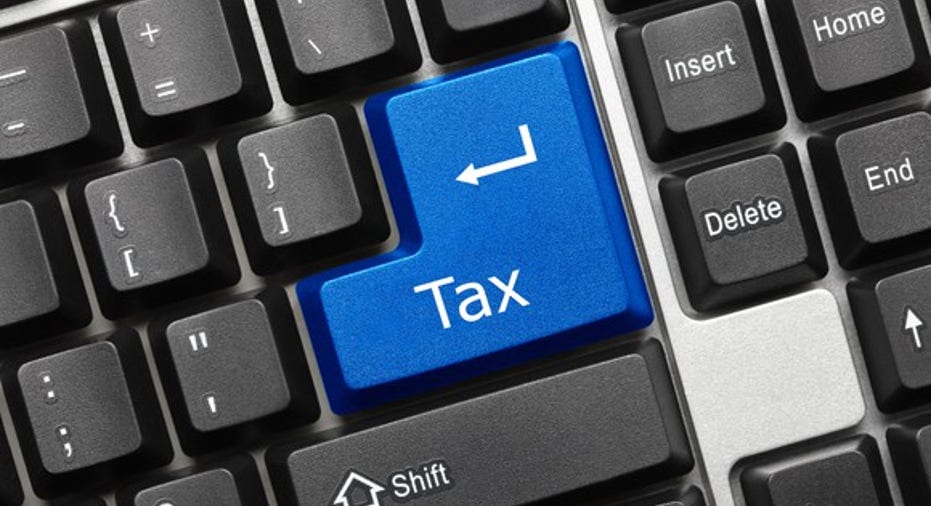Learn How the Average American Taxpayer Got a $8,134 Writeoff

Tax time is here, and across the nation, Americans are looking for ways to cut their taxes. One tax break that nearly everyone gets to take is known as the personal exemption, and the larger your family is, the more likely it is that you'll get to claim a greater number of personal exemptions. This lucrative tax break helps nearly all Americans in reducing their tax bills, except that restrictions apply to those with high levels of income. Below, we'll go through how personal exemptions work and whether you can claim your fair share.
Image source: Getty Images.
The basics of personal exemptions
Tax laws are complicated, but the personal exemption is pretty simple. You can take a personal exemption for yourself and for any dependents that you have. Joint filers can take one personal exemption for each spouse. For every exemption you have, you can reduce your taxable income by a certain amount that varies each year. For tax returns for 2016, the value of each personal exemption is $4,050.
The natural question that follows from that short description is who qualifies as a dependent under the tax laws. Most taxpayers who are parents claim their children as dependents if the children are under age 19 at the end of the year, a student under age 24, or disabled. To be a dependent, a child must live with you for more than half the year unless attending college. Children must also rely on others to provide half or more of their financial support during the year.
Sometimes, people other than children can be dependents. Among them are parents, grandparents, or others who live with you throughout the year. They must have income of less than $4,000, and you must provide more than half of their financial support for the year in order to claim them as dependents.
The tax laws don't allow double-dipping of personal exemptions. If you are someone else's dependent, then you can't claim your own personal exemption on your tax return. In other words, any one person can only have one personal exemption claimed -- regardless of the tax return where that exemption appears.
How many personal exemptions do Americans get to take?
The personal exemption is one of the most popular tax breaks. Almost 138 million taxpayers took advantage of personal exemptions during the most recent year for which IRS data is available. The total tax write-off that these taxpayers received was more than $1.12 trillion.
When you do the math, what that means is that the average American taxpaying household got a reduction in taxable income of $8,134. That works out to slightly more than two personal exemptions per return on average.
How high-income taxpayers get left out
The U.S. tax system is progressive, and some tax breaks aren't available if your income is too high. Personal exemptions are one such provision, because the amount you can claim starts to go down once your adjusted gross income exceeds certain amounts.
Below, you can see the income limits that apply for 2016 tax returns.
|
Filing Status |
Personal Exemption Phaseout Begins at This Income Level... |
... and Ends at This Income Level |
|---|---|---|
|
Single |
$259,400 |
$381,900 |
|
Married Filing Jointly |
$311,300 |
$433,800 |
|
Head of Household |
$285,350 |
$407,850 |
|
Married Filing Separately |
$155,650 |
$216,900 |
Source: IRS.
It takes some math to figure out how much of your personal exemption gets phased out. Start with the number in the middle column above. For every $2,500 or part thereof ($1,250 for those who are married filing separately), the total amount you can claim on personal exemptions drops by 2%.
So for instance, say you're single and had adjusted gross income of $309,000. Your income is $49,600 above the lower threshold, and the next higher multiple of $2,500 is $50,000. $50,000 divided by $2,500 is 20, so you'll lose 20 times 2% or 40% of your personal exemptions.
Interestingly, the phase-out amount is based on a percentage of your total personal exemptions, not a strict dollar amount. Even if you have a large family with multiple exemptions, you'll still get completely phased out at the same income, as noted in the right column in the chart above.
Take what's coming to you
For most people, though, personal exemptions don't get phased out at all, and that leads to an average reduction in taxable income that can take anywhere from $800 to $2,700 off your tax bill. Be sure you know the rules and get every personal exemption you're entitled to take on your tax return this year.
The $15,834 Social Security bonus most retirees completely overlook If you're like most Americans, you're a few years (or more) behind on your retirement savings. But a handful of little-known "Social Security secrets" could help ensure a boost in your retirement income. For example: one easy trick could pay you as much as $15,834 more... each year! Once you learn how to maximize your Social Security benefits, we think you could retire confidently with the peace of mind we're all after.Simply click here to discover how to learn more about these strategies.
The Motley Fool has a disclosure policy.



















